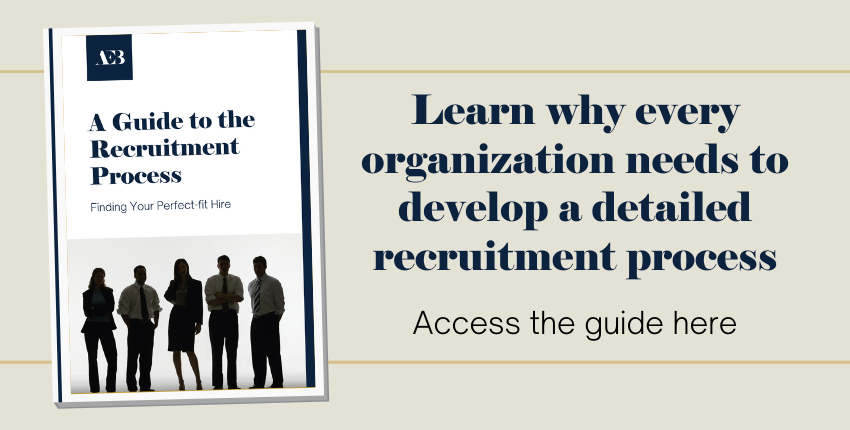The process of hiring is more than posting your opportunity, reviewing resumes, and interviewing candidates. There are countless factors at play. Among these is a critical, almost strategic, decision on how to evaluate candidates. This forces the question of whether you should focus on candidates’ core capabilities or their technical competencies.
If you haven’t given this much thought until now, more questions should be on your mind. Is there a difference between these? Should one criterion between capabilities and competencies outweigh the other?
The short answer is, yes! For the longer answer, keep reading as we dive into the nuances of core capabilities and technical competencies.
The Subtle Differences Between Core Capabilities and Technical Competencies
Let’s start with how we are defining these terms since they are frequently used interchangeably in various settings.
Core capabilities refer to the personal abilities and skills an individual possesses inherent to the functional areas of their professional role. In other words, what can a person DO as a result of the expertise they have gained?
Technical competencies are all about the knowledge one has to effectively perform a specific job or task within an organization. In this case, we are referring to what knowledge do you HAVE that can be applied to the position or task?
In our practice, we refer to core capabilities as a candidate’s talents, and their technical competencies as tools.
While subtle, the distinction between these can mean a rather large disparity in simply hiring based on education and position title (technical competencies) and allowing an organization to expand their search to individuals with relatable experience that is directly applicable to the position you are hiring for (core capabilities). This also could mean the difference between narrowing hiring decisions based solely on education level vs. years of hands-on experience. Or hiring someone who can perform the needed tasks vs. someone who will thrive in their new environment.
How Capabilities and Competencies Impact Hiring Practices
Hiring for technical competencies
Unless a hiring manager is intentional about their search criteria, the natural default is to start with a checklist of generic competencies someone currently in the position usually has. This can include past job titles, licenses and certifications obtained, experience handling the expected responsibilities, or even location in relation to where the hiring company is located.
While important to know and verify, this approach fails to place a specific role into context. Does your product or service involve a long or short sales cycle? Are projects at your organization typically managed under fast or slow timelines? What are your company culture and communication styles like? Recruiting and hiring expert, Lou Adler, considers this a fatal flaw in hiring success.
An individual who has excelled in a fast-paced environment where they made autonomous decisions may become very frustrated and demotivated in an organization with longer approval processes and structured communication channels. This means that a candidate that initially looked good on paper, may be set up to fail or as one who will quickly leave in frustration.
The other challenge with a technical competency-only hiring process is that you may be limiting your pool of potential candidates unnecessarily. Hiring solely on competencies means you probably aren’t considering transferable skills. And you may be ignoring abilities that can add value, fresh perspectives, and alternative processes helpful to your organization. A title is not enough to find the right person.
Hiring for core capabilities
So what does the alternative look like then? How do you structure your hiring and interviewing process based on core capabilities?
It starts with a clear understanding of what you are hiring for. Specifically, it means identifying the critical performance objectives for the role. Ask yourself:
-
What projects and tasks does this person need to do?
-
How should your new hire apply their skills and knowledge to your organizational goals and objectives?
-
How do you expect this person to engage with the rest of your organization?
-
Do they have a strong business acumen and a defined philosophy for the role?
Employers must define what success on the job looks like since this is what someone will initially be hired for and what their work performance will be measured against. Focus on outcomes, not just a list of inputs.
Here at AEBetancourt, we use a simple scorecard to map this out. We work with our clients to detail a list of tools, talents, and personality traits their perfect-fit candidates possess. Specific requirements are then detailed for each item on the scorecard. For example, a desired trait of having a strong business acumen might be defined as an individual with the ability to implement corporate strategy and become an influential advisor to the executive leadership team.
Their business philosophy might be broken down between employees and management to consider how a candidate seeks to create a diverse workspace that ensures a high level of employee satisfaction. And on the management side, their approach to developing, coaching, and mentoring direct reports.
As prospective candidates move through the interview process, they are scored on the detailed requirements of each listed tool, talent, and personality trait as “perfect match”, “match”, or “no match”. This approach not only holds everyone involved in the hiring process to a consistent standard of measurement, but also removes the inherent challenges of hiring based solely on job title, first impressions, and if their salary fits within your budget.
Using core capabilities as your guide will also help you create better job descriptions when posting new opportunities you are hiring for. And better job descriptions mean attracting a larger pool of individuals that more closely align with your ideal qualifications.
Instead of an either-or, why not both?
So, does focusing on core capabilities mean you should ignore technical competencies when searching for and ultimately hiring your next employee? Not at all.
Technical competencies have their place. A Human Resources professional with HRCI or SHRM certifications is going to have critical knowledge that will help your company remain compliant with state and federal employment policies and hiring procedures, among other proficiencies. This means that similar human resource titles and certifications are most likely not the ideal pool to source prospective candidates for an Insurance Producer role.
The knowledge someone has is very important. However technical competencies should serve as a general guideline for what you ideally want to measure against; and therefore a secondary set of criteria for what you are really looking for: core capabilities. Your goal in finding your perfect-fit hire is to uncover what an individual can do with the knowledge they have.
Applied knowledge needs to balance against the situation at hand. Your ideal candidate only becomes that perfect-fit hire when their abilities, knowledge, experience, and training all align with the ideal role and setting.
Learn more about how to structure your recruiting and hiring process in this helpful guide.


.png)
.png)
.png)
.png)
.png)


